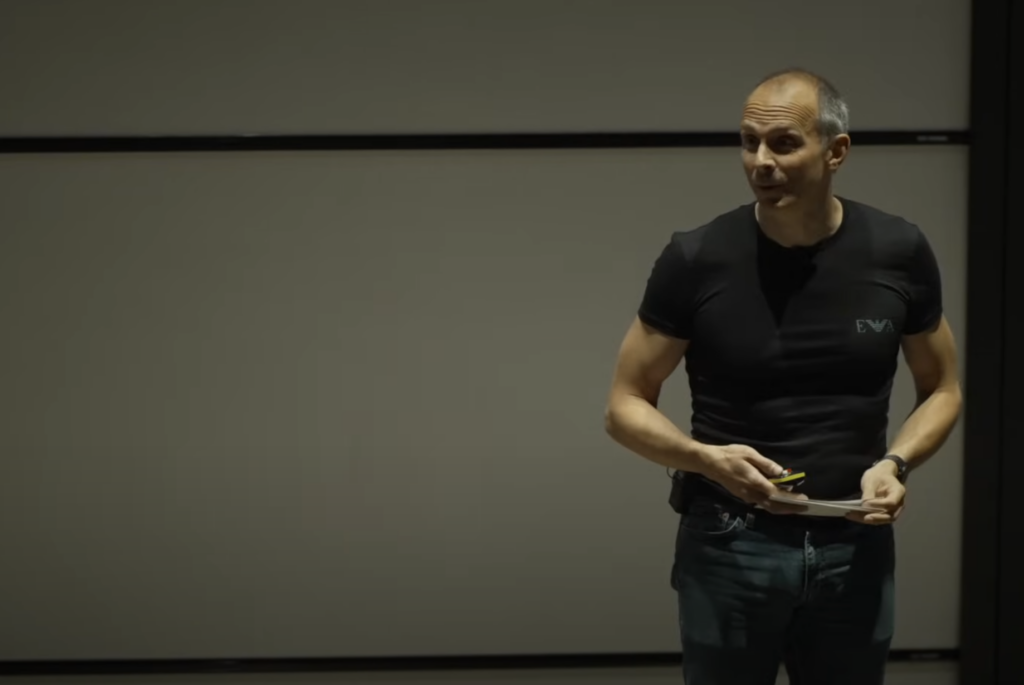
Here’s a round-up of some news we didn’t cover on the Aperiodical in the last couple of months.

Here’s a round-up of some news we didn’t cover on the Aperiodical in the last couple of months.
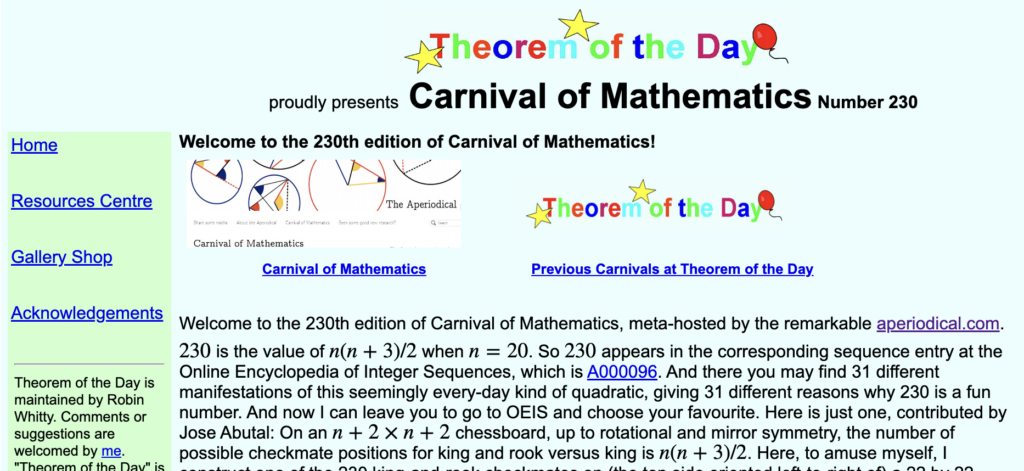
The next issue of the Carnival of Mathematics, rounding up blog posts from the month of July 2024, is now online at Theorem of the Day. The Carnival rounds up maths blog posts from all over the internet, including some from our own Aperiodical. See our Carnival of Mathematics page for more information.
Hi! My name is Colin, and I am a PROPER mathematician now. I’ve made a contribution to the Online Encyclopaedia of Integer Sequences.
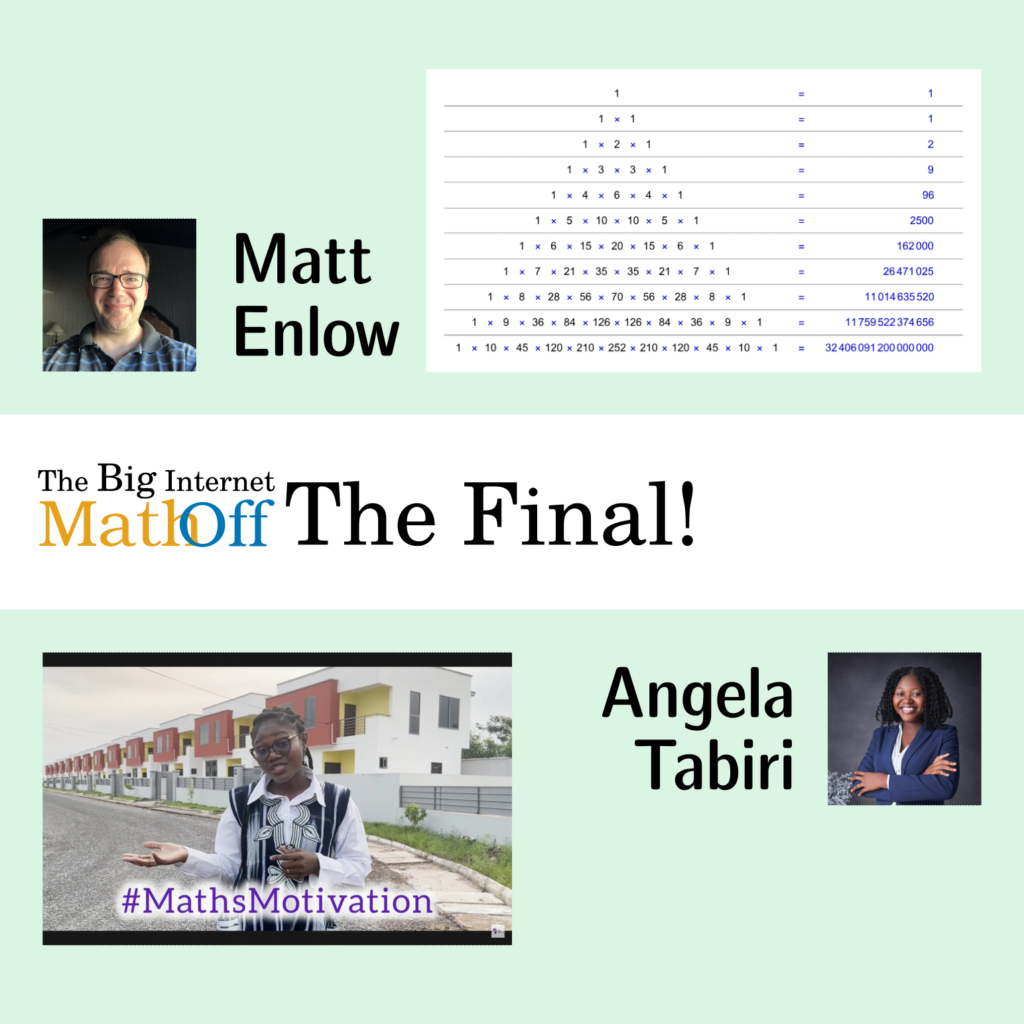
Here’s the final match of The Big Internet Math-Off. Over the past month, we’ve heard from 16 interesting mathematicians and whittled them down to just 2. Today, we’re pitting Matt Enlow against Angela Tabiri to determine The World’s Most Interesting Mathematician (2024, of the people who I asked to take part and were available). Take…
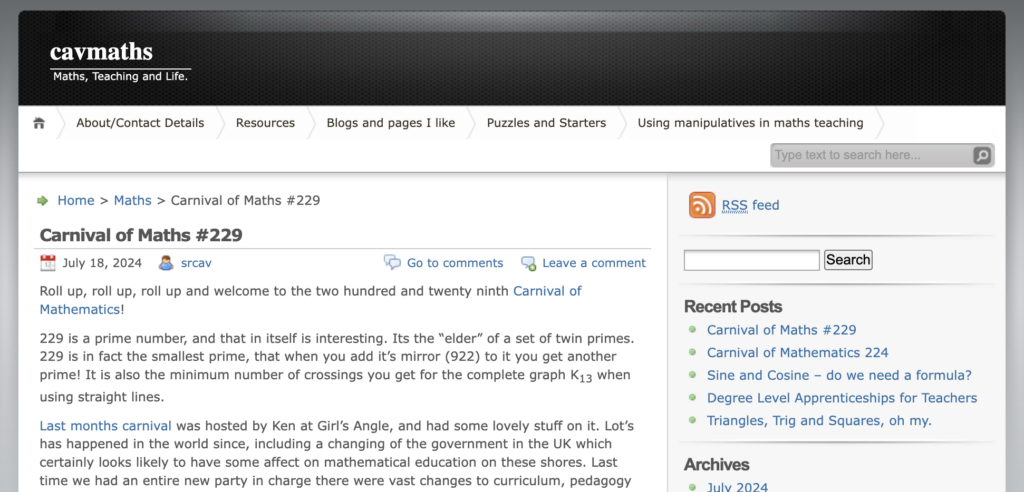
The next issue of the Carnival of Mathematics, rounding up blog posts from the month of June 2024, is now online at Cavmaths. The Carnival rounds up maths blog posts from all over the internet, including some from our own Aperiodical. See our Carnival of Mathematics page for more information.
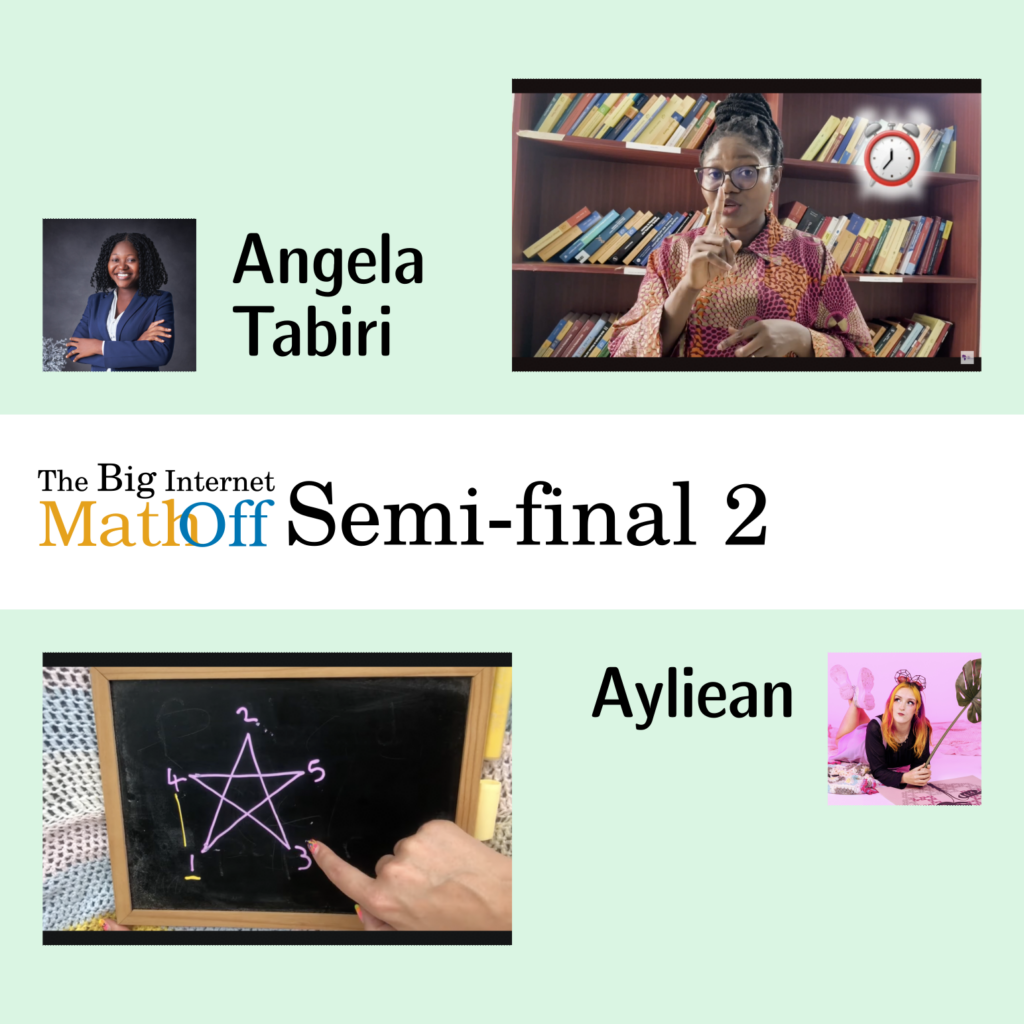
Here’s the second semi-final match of The Big Internet Math-Off. Today, we’re pitting Angela Tabiri against Ayliean. Take a look at both pitches, vote for the bit of maths that made you do the loudest “Aha!”, and if you know any more cool facts about either of the topics presented here, please write a comment…
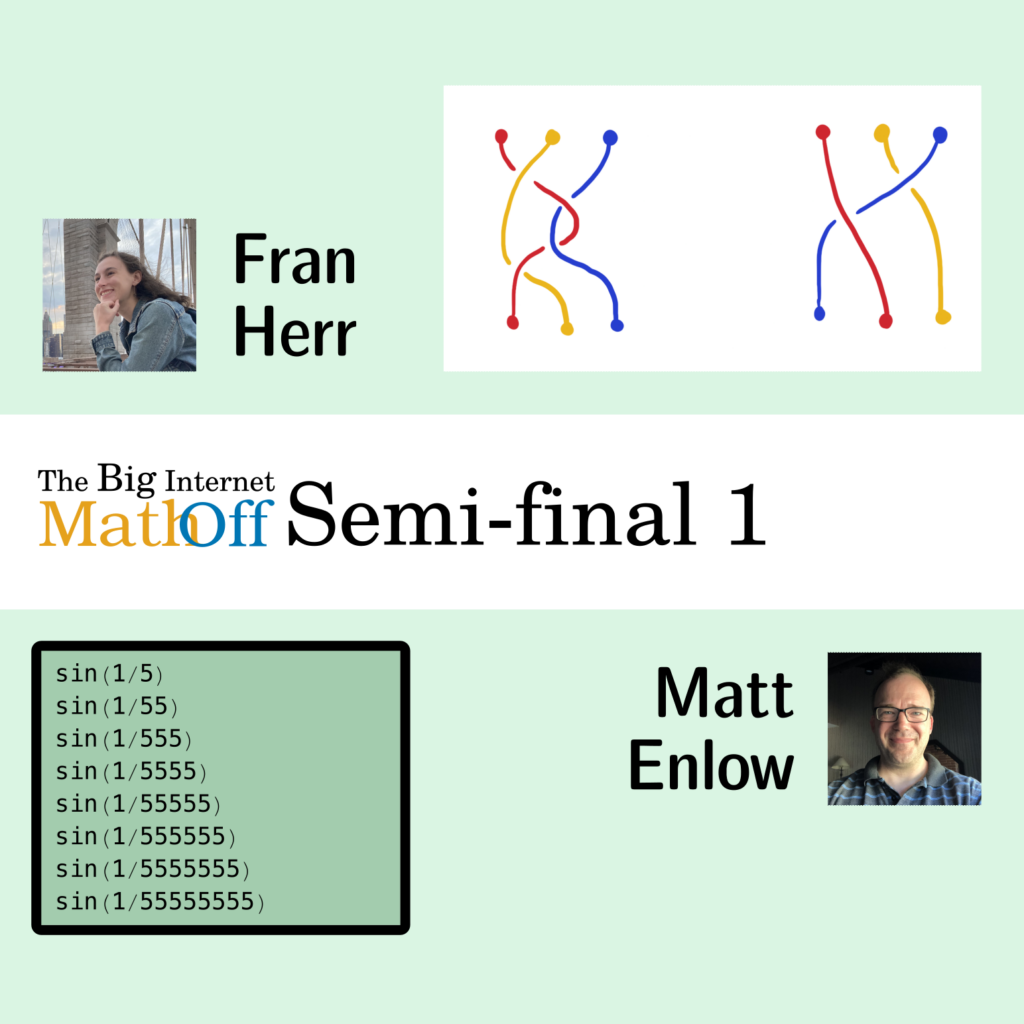
Here’s the first semi-final match of The Big Internet Math-Off. Today, we’re pitting Fran Herr against Matt Enlow. Take a look at both pitches, vote for the bit of maths that made you do the loudest “Aha!”, and if you know any more cool facts about either of the topics presented here, please write a…